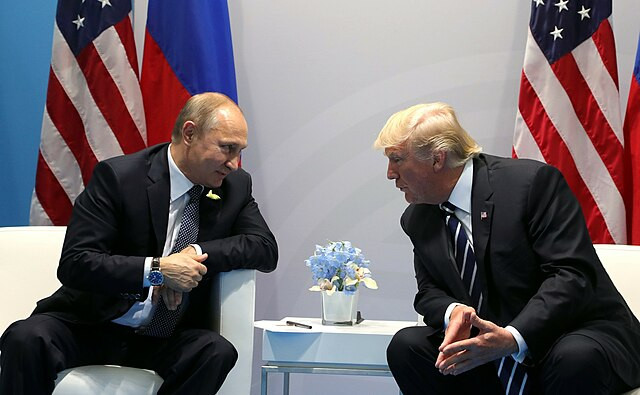The Kremlin expressed "cautious optimism" on Friday regarding a U.S.-brokered ceasefire proposal for Ukraine, but Russian President Vladimir Putin placed firm conditions on any agreement, raising skepticism over his true intentions. The Russian leader said he was open to the ceasefire plan but only if it addressed the "root causes" of the war, a phrase the Kremlin has repeatedly used to justify its demands for security guarantees and opposition to NATO expansion.
"We agree with the proposals to stop the hostilities," Putin said. "But only if it leads to long-term peace and eliminate the root causes of this crisis." His comments came after a meeting with U.S. special envoy Steve Witkoff in Moscow, where the Trump administration is pushing for a 30-day ceasefire agreement endorsed by Ukrainian President Volodymyr Zelensky.
Kremlin spokesperson Dmitry Peskov echoed Putin's stance, stating, "There are certainly reasons to be cautiously optimistic." He added, "[Putin] said that he supports President Trump's position in terms of a settlement, but he voiced some questions that need to be answered together."
Zelensky swiftly rejected Putin's conditions, calling them "manipulative." In his nightly address, he said, "Putin often does this-he does not say 'no' directly, but he does it in such a way that practically everything only delays it and makes normal decisions impossible." He added, "Putin, of course, is afraid to tell President Trump directly that he wants to continue this war, that he wants to kill Ukrainians."
The ceasefire discussions come as Russian forces continue their military offensive. Hours after Putin's remarks, Ukraine's Armed Forces reported that Russian troops launched 27 drones at targets across Ukraine overnight, including a civilian hospital in the western village of Zolochiv. In the southern city of Kherson, where Russian forces have ramped up bombardment, residents surveyed the damage from what Ukraine described as a Russian glide bomb attack. "Putin is a liar," said Mykola Vorobjovskii, a 69-year-old resident who lost his home in the attack. "He calls black white and white black. He said he is liberating Ukraine. He liberated me from my house, job and car."
Western analysts have suggested Putin may be stalling for time while his forces consolidate territorial gains. Jonathan Eyal, a director at the Royal United Services Institute in London, said, "It's not in Putin's interest to get a ceasefire now. However, he cannot afford to annoy the American president, and expose and humiliate him with an outright rejection."
Trump, for his part, described Putin's response as "a promising statement" but noted that it was not a final commitment. "Now we're going to see whether or not Russia is there, and if they're not, it'll be a very disappointing moment for the world," he said. "I'd love to meet with him, or talk to him."
The White House confirmed that Trump's envoy Witkoff had met with Putin for direct negotiations in Moscow. National Security Advisor Mike Waltz expressed cautious optimism, telling Fox News, "We do have some cautious optimism. Of course, both sides are going to have their demands, and of course, both sides are going to have to make some compromises."
Despite Putin's claim that he supports the ceasefire in principle, Ukrainian officials remain doubtful. Mykola Bielieskov, a research fellow at Ukraine's National Institute for Strategic Studies, wrote that Putin's response was "evasive" and an effort to extract additional concessions from Kyiv before entering formal negotiations.
Analysts at the Institute for the Study of War warned that "Putin is holding the ceasefire proposal hostage and is attempting to extract preemptive concessions ahead of formal negotiations to end the war." The group added, "Putin's envisioned ceasefire would grant Russia greatly disproportionate advantages and set conditions for the Kremlin to renew hostilities on terms extremely favorable to Russia."
The Kremlin's long-standing demands for peace talks have included Ukraine's withdrawal from Russian-occupied territories in Donetsk, Luhansk, Zaporizhzhia, and Kherson, as well as guarantees that Kyiv will abandon its ambitions to join NATO. While Russia insists that these demands are necessary for lasting peace, Ukrainian officials and Western allies argue that they amount to de facto surrender.




